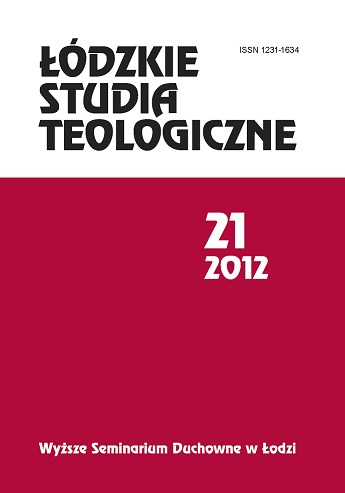Marcina Lutra koncepcja „niewolnej woli” w świetle doktryny Kościoła katolickiego
Luther’s view on the “bondage of the will” and its impact on the Catholic Church doctrine
Author(s): Janusz BujakSubject(s): Christian Theology and Religion, Social Philosophy, Philosophy of Religion, Philosophy of Law, Sociology of Religion
Published by: Wyższe Seminarium Duchowne w Łodzi
Keywords: Martin Luther; free will; non-free will; justification by faith;
Summary/Abstract: The aim of the article is to show Luther’s view on the “bondage of the will” and its impact on the theological and philosophical thoughts they have had in Europe and the United States. The thesis of “the bondage of the will” explained in a booklet De Servo Arbitrio from December, 1525 is a base for not only anthropology but also theology and christology of the weimarsky reformer. According to this idea a person is redeemed only through faith (sola fides) and any human will’s cooperation with God’s grace is impossible because the human’s nature is totally decayed and sinful since the original sin. The Council of Trent was a reaction to Martin Luther’s ideas. It emphasized that we are in fact excused through the faith in Jesus, yet it happens with our responsibility and cooperation with God’s grace.
Journal: Łódzkie Studia Teologiczne
- Issue Year: 21/2012
- Issue No: 1
- Page Range: 39-50
- Page Count: 12
- Language: Polish

